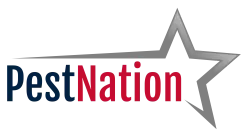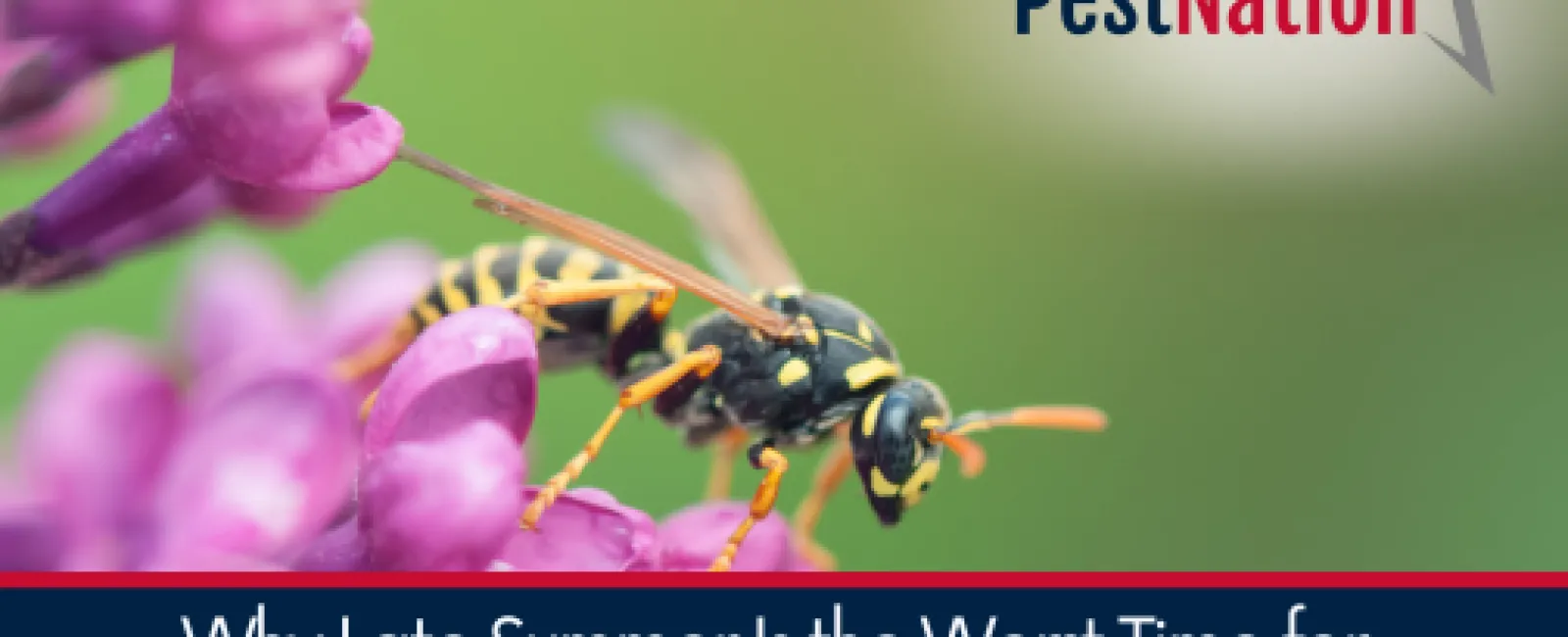As the sweltering days of summer draw to a close, most people start looking forward to cooler weather and the end of bug season. Unfortunately, for homeowners across Atlanta, Charlotte, and Charleston, August brings with it a surge in stinging insect activity. Wasps, hornets, and yellow jackets become more aggressive, more territorial, and significantly more dangerous during this time of year. But why is late summer the worst time for these pests—and what can you do to protect your home and family?
Understanding the behavior of these stinging insects is the first step in preventing unwanted encounters. These pests play a role in natural ecosystems, but their aggressive tendencies during late summer can quickly turn a backyard barbecue into a painful experience. In this article, we'll explore why their activity peaks in August, how PestNation can help you stay safe with targeted pest inspections and treatments, and what steps you can take to deter them from settling near your home.
Why Stinging Insects Become More Aggressive in Late Summer
Insects like wasps and hornets are not naturally aggressive for most of the year. In spring and early summer, their primary focus is on foraging and building their nests. The queen lays eggs, while workers tirelessly collect food for the larvae. During this phase, the colony is growing but not yet at full capacity, and the insects are relatively docile as they focus on survival and reproduction.
By late summer, however, the colony structure starts to change. The queen stops laying eggs, and the larvae population decreases. With fewer young to care for, the workers no longer have a steady source of sugary secretions that larvae produce. As a result, these adult wasps, hornets, and yellow jackets start actively seeking out sweet foods—fruits, sodas, sugary snacks, and even human food during outdoor meals. This change in diet and purpose makes them more aggressive, as they compete for limited resources and defend their nests more fiercely.
Additionally, colonies are at their largest during this time, often containing thousands of individuals. Larger colonies mean more workers—and more potential for painful stings. With fall approaching and the colony nearing the end of its life cycle, these insects essentially have "nothing to lose," making them unpredictable and hostile. That's why late summer is when you're most likely to encounter swarms near garbage cans, outdoor gatherings, or around your home's eaves and attics.
Recognizing and Identifying Stinging Insects
Stinging insects come in a variety of species, but the most commonly aggressive in late summer include:
-
Yellow Jackets: Small, black-and-yellow wasps that often nest underground or in wall voids. Known for their unprovoked aggression and tendency to sting multiple times.
-
Paper Wasps: Slightly larger with slender bodies and dangling legs. Their nests resemble upside-down umbrellas and are often found under eaves or overhangs.
-
Hornets (such as Bald-Faced Hornets): Larger, more robust wasps with white and black markings. Their aerial nests are often found in trees, shrubs, or on buildings.
Each of these species poses a risk to humans and pets, especially if disturbed. Knowing how to identify them can help you respond appropriately and avoid accidental encounters.
The Importance of Professional Pest Inspections
Because stinging insect nests can be hidden inside walls, underground, or in high tree branches, locating them without professional help can be dangerous. That's where PestNation pest inspections come in. Our trained technicians serve homeowners in Atlanta, Charlotte, and Charleston with thorough inspections that identify nesting sites, high-risk areas, and potential points of entry.
During a PestNation inspection, our team doesn't just check for active stinging insect nests. We also look for other common pests like rodents, which may be sharing the same hidden spaces in attics or crawlspaces. Through our rodent exclusion services, we can help close off entry points and keep your home safe from multiple pest threats simultaneously.
Inspections are especially critical in late summer, when nests are more mature and difficult to remove safely. Attempting to deal with these pests without the right gear or knowledge can result in serious injury or allergic reactions. PestNation professionals use advanced tools and safety techniques to handle nests efficiently and with minimal disruption.
Interior and Exterior Pest Treatments Matter
PestNation offers interior and exterior pest treatments in Atlanta, Charlotte, and Charleston to ensure comprehensive protection against summer pests. These treatments are customized based on the inspection findings and take into account your home's layout, surrounding environment, and current infestations.
For stinging insects, exterior treatments are especially important. We target high-risk areas such as rooflines, eaves, outdoor structures, and landscaping. These proactive steps can deter nest formation and limit insect activity near your home.
Interior treatments are also important when nests are located in wall voids or attics. In such cases, precise and careful treatment is required to ensure safety and full eradication. In addition, PestNation's quarterly services offer year-round monitoring and protection, ensuring that seasonal changes don't catch you off guard.
Preventative Measures You Can Take
While professional pest control is the most effective option, there are several steps homeowners can take to reduce the likelihood of stinging insect problems:
-
Keep trash bins tightly sealed. Yellow jackets are attracted to food waste and sugary liquids.
-
Inspect outdoor areas for early nest formation. Removing small nests early is far safer than dealing with large, established colonies.
-
Limit exposed food and drinks outdoors. Sugary snacks, meats, and fruits can all attract aggressive foragers.
-
Seal cracks and crevices around your home. This helps with both stinging insect and rodent exclusion.
-
Install mesh screens over vents and chimneys. This prevents access to attics and other voids.
These small actions can complement PestNation's professional treatments and give you peace of mind during peak insect season.
Other Summer Pest Considerations
Stinging insects aren't the only problem during late summer. Mosquito populations also remain high during this time, especially in humid areas like Atlanta, Charlotte, and Charleston. Mosquito treatments from PestNation can help protect your yard from bites and the diseases these pests can carry.
Likewise, late summer often sees a spike in rodent activity, as these pests start preparing for fall by seeking shelter indoors. A single pest inspection can uncover multiple threats to your home, making PestNation a one-stop solution for comprehensive protection.
PestNation also offers eco-friendly pest control solutions like In2Care, which targets mosquitoes at the breeding source using safe, scientifically proven technology. This allows for effective control with minimal impact on the environment and non-target species.
Why Choose PestNation?
At PestNation, we take pride in offering responsive, reliable pest control solutions tailored to your home's needs. Whether you're in Atlanta, Charlotte, or Charleston, our local teams understand the unique challenges homeowners face in late summer and beyond. We don't believe in one-size-fits-all services—instead, we provide targeted treatments backed by years of experience and cutting-edge tools.
Our combination of interior and exterior pest treatments, thorough PestNation pest inspections, and year-round quarterly services gives you an unbeatable defense against seasonal surges in pest activity. From dangerous stinging insects to persistent rodents, we're equipped to handle it all—quickly, safely, and professionally.
Late summer may be the most dangerous time of year for stinging insects, but it doesn't have to be the most stressful. By understanding the biology and behavior of these pests—and partnering with professionals like PestNation—you can protect your home, family, and pets from painful encounters and hidden infestations.
Now is the time to take action. With just a few strategic inspections and treatments, you can enjoy the final days of summer with peace of mind, knowing that you've done everything possible to keep your home secure. Don't wait until the swarms arrive—contact PestNation today and discover how our expert team can help you stay safe, bite-free, and in control.

